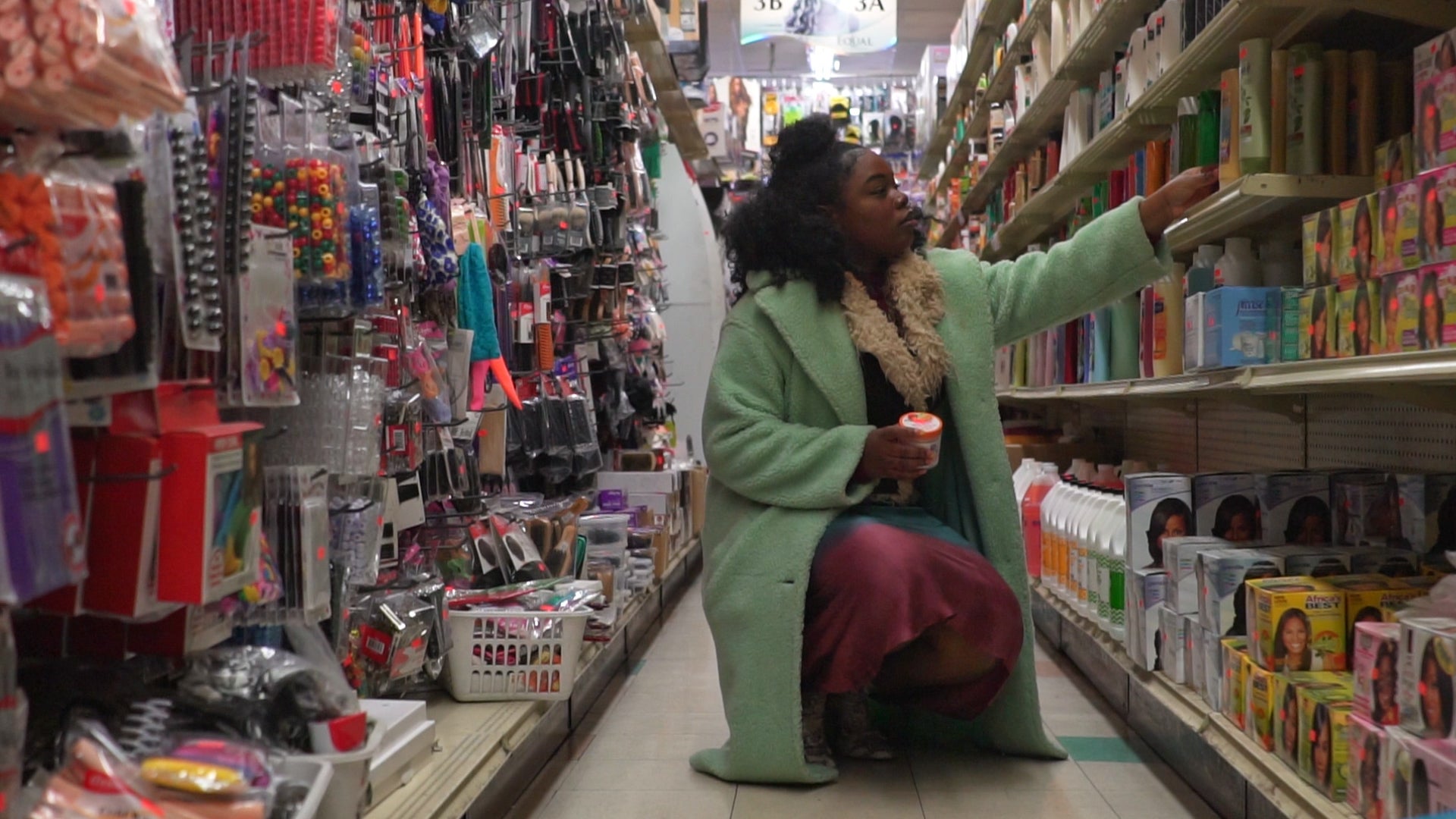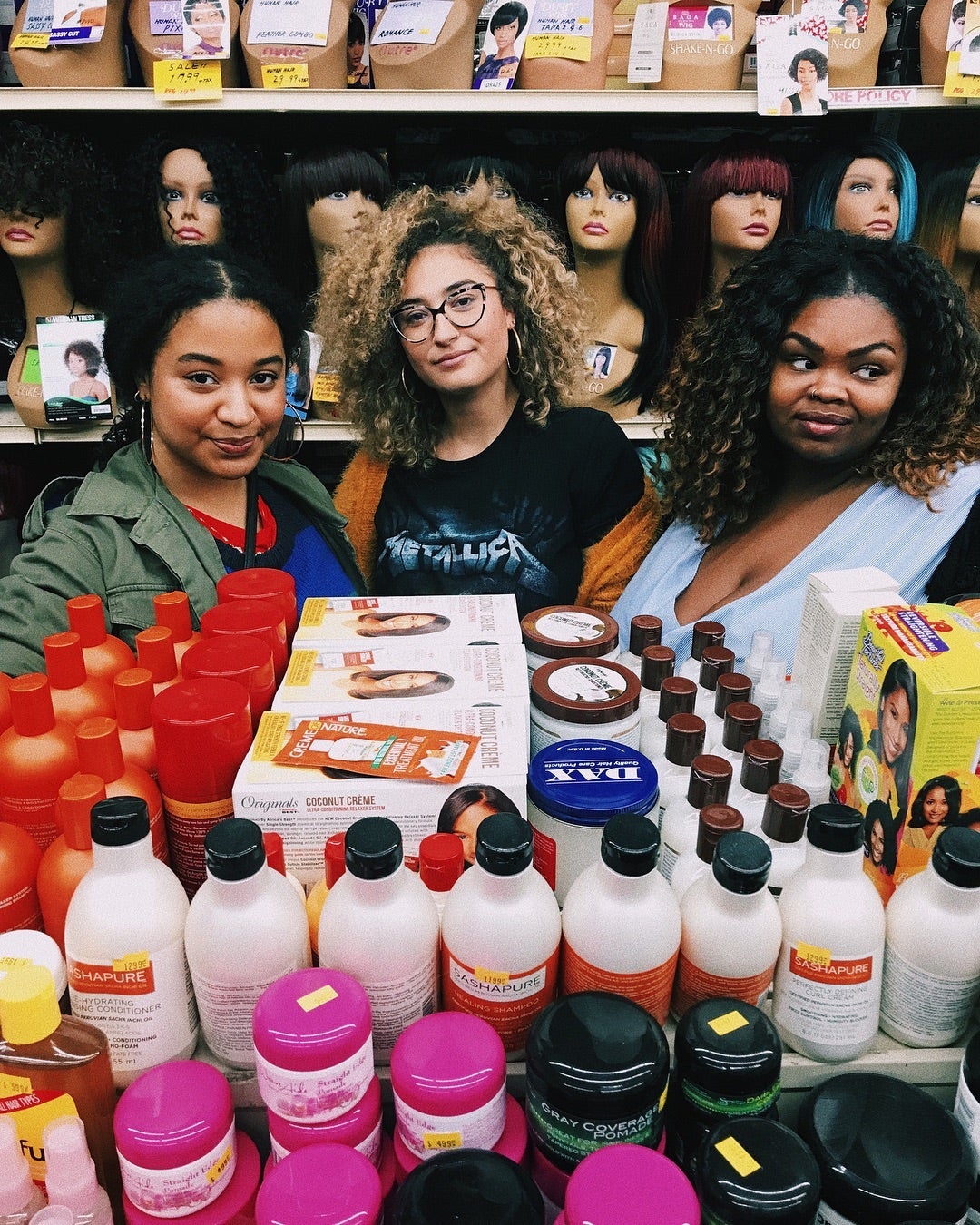
The short documentary Black Girl Church might not be what you’d expect from its name. Created and directed by Audrey Williams and Marissa Pina, the film explores the idea of the beauty supply store as a haven for Black women, but one that also harbors a uniquely tumultuous and marred relationship. A place where most Black women around the country can recall having a relationship with from a young age, the beauty supply store has become a staple in the Black community, a sanctuary almost. But with most beauty supply stores in the United States being owned and operated by Koreans and Korean-Americans, there’s often a contentious interaction between the patrons and the business owners.
It’s a relationship that most ESSENCE readers know—needing the beauty supply store as the only place that has a large concentration of products for our hair types, but being asked to check our bags at the door or being watched as we shop the store as if we’re genetically predisposed to stealing. For Williams and Pina, their experience had been similar, which sparked the discussion that led to the making of the short movie.
“We’ve talked about natural hair before. There’s the film Good Hair, but for me I thought a lot of our creativity with our hair starts with going to the beauty supply store. It’s a part of our routine but it hasn’t been spoken about,” said Williams.
“We often don’t see our stories being told by us and for us. There’s something here, there’s a larger issue. When we started interviewing all the women [in the film] they all started saying ‘but why don’t we own them?” added Pina.
The film includes the perspectives of writer Marjon Carlos, Avelle Amor, Kelly Augustine, NYLON senior entertainment editor Sesali Bowen, Leeza Jonee and Sade Ogunkeyede.
One attendee of the Harlem screening at Beleza Natural Salon on 125th Street likened it to an abusive relationship—describing it as an unhealthy interaction in which you’re being mistreated, but you keep going back because there’s something there that you need mentally. The women in the film, including Williams, who tells her story in addition to directing, and Marjon Carlos, who penned the Jackie Aina beauty story in ESSENCE’s June 2019 issue, discuss their experience with the “Black girl church” and how that relationship evolves.
“Beauty supply stores are like this little space within our community specifically for us, for Black women. But then you see the products that are reflecting messages from outside the community. Do you have nappy hair? Straighten it. Do you have dark skin? Lighten it,” Audrey says in the film.
Carlos adds, “I think it leaves Black women thinking that they are always lacking and there’s always something that they need to improve upon.”
For Sade Ogunkeyede, Black beauty need no improvement, and with the passion she had for her hair, and her relationship with the beauty supply store, it made sense for her to turn it into a professional venture in 2017. She’s part owner of Jeffrey Beauty Supply in the Crown Heights area of Brooklyn, and one of only 2,500 Black beauty supply store owners in the country (of the approximately 35,000 beauty supply stores in the U.S., according to Shoppe Black). In the film she shares her story of struggle to keep her store open, and does a deep dive into the difficulty of creating relationships with suppliers as an outsider, in other words, as a Black business owner.
A 2018 study done by Nielsen found that Black women spent $54 million in the “ethnic hair and beauty” market in 2017, making up 85 percent of the total spent that year. The numbers are astounding when you break them down. Black women overindex in spending in several consumer beauty categories, yet underindex in ownership in those same markets. Black Girl Church is a much-needed story that shines a light (however small) on these often overlooked facts.
And though most of the feedback has been positive and the ladies have been met with love for their work, not everyone was happy about two Black women with very fair skin telling a story about the Black experience. After Teen Vogue ran a story about the film, Pina’s DMs were wrought with negative messages about her involvement. People began to draw comparisons between her and Rachel Dolezal. Williams’s response was to clap back each time. But she said that once the trailer was released, the haters went silent. It became only love, support and curiosity that sparked conversation. Still, Pina, who is biracial, acknowledged that she is White passing, and that it was something that couldn’t be overlooked, and part of her decision not to be featured in the film.
“Being Black is not one experience, one feature, one look or one particular thing. We really wanted to consciously center Black women who really lived this experience their entire lives,” said Pina. “We feature a lot of regular women who are relatable, normal Black women you don’t see on a screen together consecutively.”

The filmmakers are taking the short doc on the road, with several screenings scheduled for Washington, D.C., Philadelphia, possibly Cleveland, Los Angeles and back around to New York City. They’re also taking it international and will be hosting a screening in Amsterdam, which, to their surprise, had a comparable history. Their goal is to partner with Black-owned businesses to host these intimate events in order to bring it to the community for whom this 25-minute visual love letter is for. The hope is that a large film festival or streaming service like Netflix will pick up Black Girl Church so that the broadest audience can get a serving of this gospel. Amen!